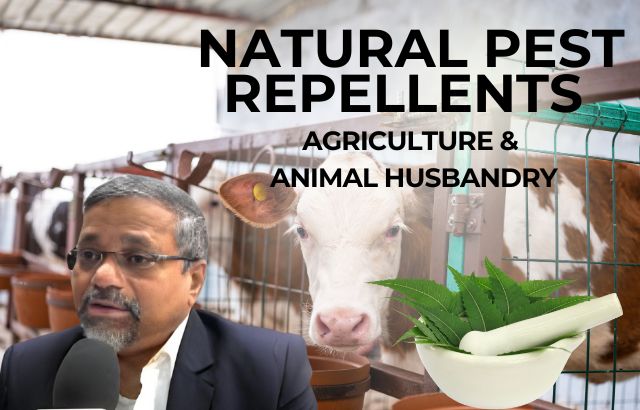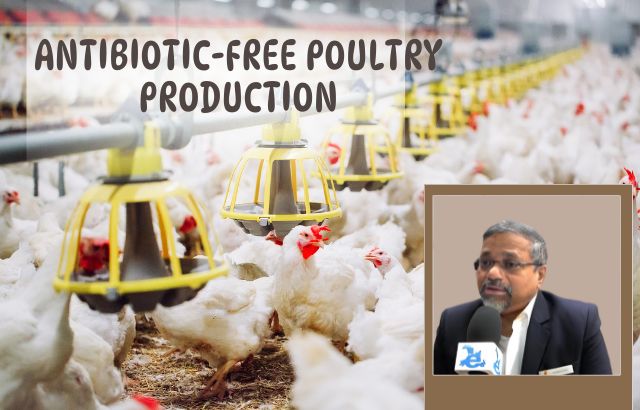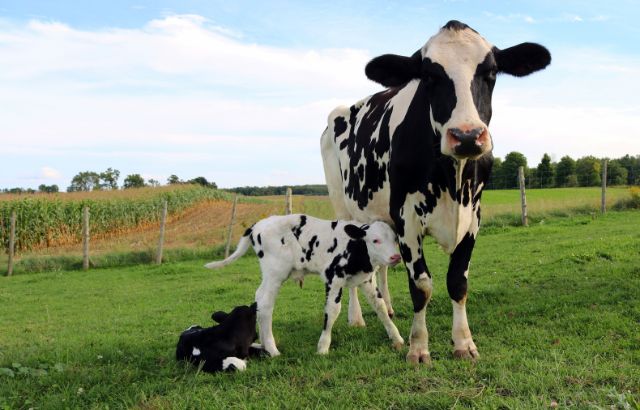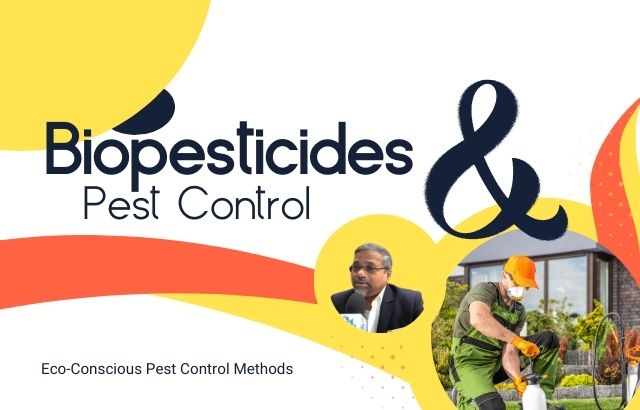As the sun set over the rolling fields of Maharashtra, a young farmer named Arjun stood among his crops, worry etched across his face. Despite his best efforts, pests had invaded his farm, threatening his livelihood. This scene is all too familiar for many farmers worldwide, battling pests while trying to avoid the harmful effects of chemical pesticides. But change was on the horizon. Enter Jaiguru Kadam, a visionary known for his innovative, eco-friendly pest solutions. Through his work, Kadam has transformed agricultural practices, offering hope and sustainable solutions to farmers like Arjun.
The Rise of Natural Pest Repellents
Natural pest control have gained traction as sustainable alternatives to chemical pesticides, which often pose risks to both human health and the environment. These botanical solutions, derived from plants and other natural sources, have shown promising results in managing pests without the adverse side effects associated with synthetic chemicals.
Jaiguru Kadam’s Innovations
Jaiguru Kadam, a green innovator from India, has been at the forefront of developing natural pest repellents. His solutions are not only effective but also environmentally friendly, making them an ideal choice for modern agriculture and animal husbandry.
Agricultural Applications
Neem-Based Solutions One of Kadam’s most notable contributions is the development of neem-based pest solutions. Neem oil, extracted from the seeds of the neem tree, contains azadirachtin, a compound that disrupts the life cycle of pests. Studies have shown that neem-based products can reduce pest populations by up to 80% without harming beneficial insects or the soil ecosystem .
Garlic and Chili Sprays Kadam has also popularized the use of garlic and chili sprays, which deter pests through their pungent odors and irritant properties. These sprays have proven to be effective against a variety of pests, including aphids and caterpillars. Research indicates that such natural sprays can decrease pest activity by 60-70% in treated areas .
Animal Husbandry Applications
Herbal Fly Repellents In animal husbandry, Kadam has introduced herbal fly repellents made from a blend of essential oils like eucalyptus, citronella, and lavender. These solutions not only keep flies at bay but also promote a stress-free environment for livestock. A study conducted on dairy farms using Kadam’s repellents reported a 50% reduction in fly infestations, leading to improved animal health and productivity .
Diatomaceous Earth Another innovative solution championed by Kadam is the use of diatomaceous earth, a naturally occurring sedimentary rock, for controlling parasites in livestock. When applied to animal bedding and feed, diatomaceous earth effectively reduces parasite loads, enhancing overall animal well-being. Research has shown a 70% reduction in internal parasites among treated animals .
The Impact and Future of Natural Pest Repellents
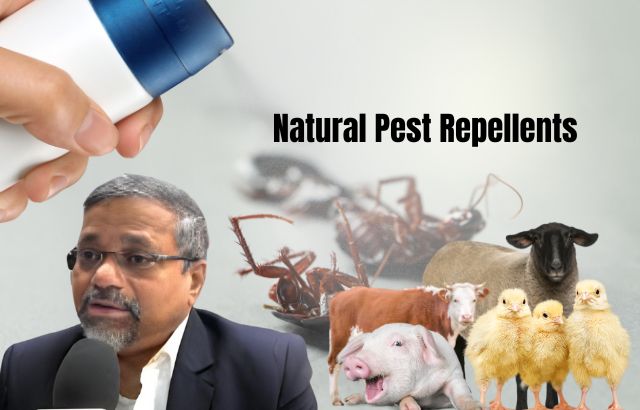
Kadam’s work has had a significant impact on both small-scale and large-scale farming operations. By reducing reliance on chemical pesticides, farmers can adopt more sustainable practices that safeguard their health and the environment. The use of natural pest solutions also aligns with global efforts to promote organic farming and reduce chemical residues in food products.
Moreover, the economic benefits are notable. Natural repellents are often more cost-effective in the long run, as they reduce the need for repeated chemical applications and mitigate the risk of pest resistance. According to a report by the Food and Agriculture Organization (FAO), adopting integrated pest management strategies, including natural repellents, can increase crop yields by 20-30% while lowering production costs .
Ask Jaiguru- Q & A Solutions for Agriculture and Animal Husbandry

What are natural pest repellents?
Answer: Natural pest repellents are eco-friendly solutions derived from plants and other natural sources that help manage pests without the harmful effects associated with chemical pesticides.
Who is Jaiguru Kadam?
Answer: Jaiguru Kadam is a green innovator known for developing natural and botanical pest repellents that are effective and environmentally friendly, benefiting both agriculture and animal husbandry.
How effective are neem-based pest repellents?
Answer: Neem-based pest repellents are highly effective, reducing pest populations by up to 80% without harming beneficial insects or the soil ecosystem.
What are some natural pest solutions used in agriculture?
Answer: Some natural pest repellents used in agriculture include neem oil, garlic and chili sprays, and essential oil-based solutions, which effectively deter various pests.
Can natural pest repellents be used in animal husbandry?
Answer: Yes, natural pest repellents can be used in animal husbandry. Herbal fly repellents and diatomaceous earth are effective in controlling pests and parasites in livestock.
What are the benefits of using natural pest repellents?
Answer: Benefits of using natural pest repellents include reduced chemical exposure, lower risk of pest resistance, improved health of crops and livestock, and cost savings over time.
How do garlic and chili sprays work as pest repellents?
Answer: Garlic and chili sprays work by emitting strong odors and irritant properties that deter pests such as aphids and caterpillars, reducing their activity by 60-70% in treated areas.
What impact has Jaiguru Kadam’s work had on farming practices?
Answer: Jaiguru Kadam’s work has significantly impacted farming practices by promoting sustainable pest control methods, increasing crop yields, reducing production costs, and supporting organic farming initiatives.
Are natural pest repellents cost-effective?
Answer: Yes, natural pest repellents are cost-effective in the long run as they reduce the need for repeated chemical applications and mitigate the risk of pest resistance, leading to lower production costs.
Conclusion
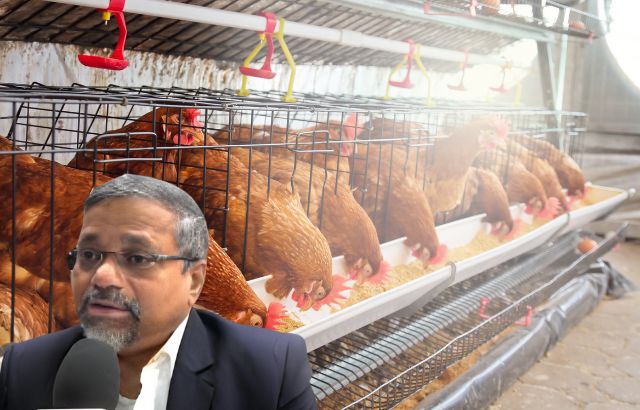
Jaiguru Kadam’s pioneering efforts in natural pest repellents offer a beacon of hope for sustainable agriculture and animal husbandry. His innovative solutions not only address the pressing issue of pest management but also contribute to a healthier and more sustainable world. As more farmers and agriculturalists embrace these natural methods, the future of farming looks greener and more resilient.

